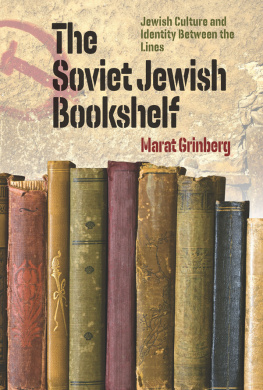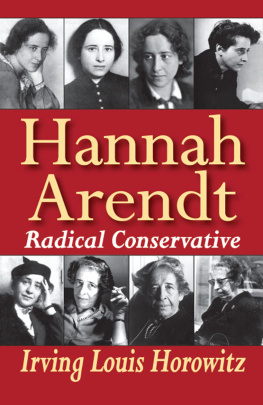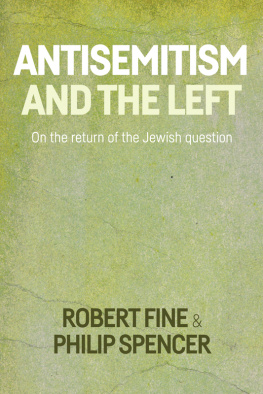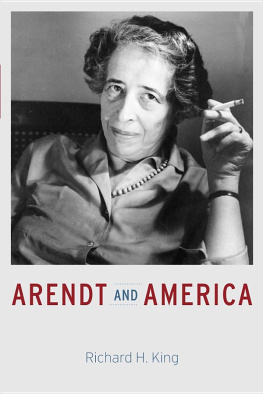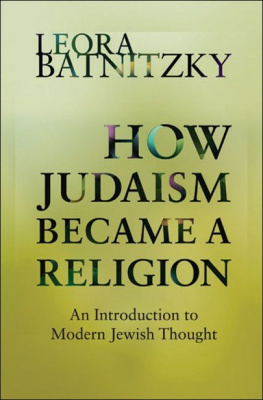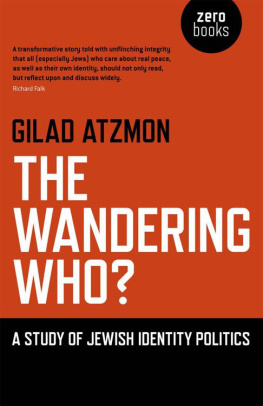The Legacy of Liberal Judaism
The Legacy of Liberal Judaism
Ernst Cassirer and Hannah Arendts Hidden Conversation
Ned Curthoys
Published in 2013 by
Berghahn Books
www.berghahnbooks.com
2013, 2016 Ned Curthoys
First paperback edition published in 2016
All rights reserved. Except for the quotation of short passages for the purposes of criticism and review, no part of this book may be reproduced in any form or by any means, electronic or mechanical, including photocopying, recording, or any information storage and retrieval system now known or to be invented, without written permission of the publisher.
Library of Congress Cataloging-in-Publication Data
Curthoys, Ned.
The legacy of liberal Judaism: Ernst Cassirer and Hannah Arendts hidden conversation / Ned Curthoys. -- First edition.
pages cm
Includes bibliographical references and index.
ISBN 978-1-78238-007-8 (hardback) -- ISBN 978-1-78533-216-6 (paperback) -- ISBN 978-1-78238-008-5 (ebook)
1. Reform Judaism--Philosophy. 2. Jewish philosophy--20th century. 3. Cassirer, Ernst, 1874-1945--Religion. 4. Arendt, Hannah, 1906-1975--Religion. I. Title.
BM197.C87 2013
296.834--dc23
2013005571
British Library Cataloguing in Publication Data
A catalogue record for this book is available from the British Library
ISBN 978-1-78238-007-8 (hardback)
ISBN 978-1-78533-216-6 (paperback)
ISBN 978-1-78238-008-5 (ebook)
To my parents,
Ann Curthoys and John Docker
Acknowledgements
This book has been made possible by the assistance and advice of organizations, institutions, and valued friends and colleagues. Most of the research for this book was conducted under the auspices of an Australian Research Council Australian Postdoctoral Fellowship. I was able to conduct research in the United Kingdom thanks to funds from the Research School of Humanities and the Arts at the Australian National University. I am also grateful to the Australian Academy of the Humanities for providing a Humanities Fieldwork Fellowship allowing me to travel to the United States and conduct invaluable research at the Hannah Arendt Archives at the Library of Congress. I am grateful to staff and colleagues at the former Centre for Cross-Cultural Research and the School of Cultural Inquiry. I would like to acknowledge the assistance of staff at the Chifley and Menzies Libraries of the Australian National University.
I have many family members, friends, and colleagues to thank for their support and helpful advice. I would like to thank Debjani Ganguly for her friendship, guidance, and continuing support. For their generosity in conversation and in reading and commenting on parts of the book, I thank Alex Cook, Willi Goetschel, Richard King, Dirk Moses, Andy Schaap, and Dan Stone. I am especially grateful to Ann Curthoys and John Docker for reading the entire manuscript and offering invaluable advice and guidance. I could not have undertaken this project without their extraordinary efforts, and their generous and unstinting support. My most heartfelt gratitude goes to my partner Shino Konishi who has provided wonderful feedback, loving support, and expert help. This book could not have been written without you. My thanks also to Glenys Holley and the Holley family for their love and support. My son Leo is my greatest inspiration.
I dedicate this book to my parents.
Earlier versions of Chapters 1 and 8 appeared, respectively, as A Diasporic Reading of Nathan the Wise, in Comparative Literature Studies 47(1) (2010), 7095, and Hannah Arendt: A Question of Character, in New Formations 71 (2011), 5878.
Introduction

This book is an attempt to historicize the so-called Jewish writings of Hannah Arendt but it is also a reconstruction of an important tradition of Jewish thought and politics, one that is continually being renewed in the face of contemporary challenges. For some time I have felt that despite the veritable critical industry that has grown up around Arendt as a political theorist and philosopher, the specific intellectual and ethical background to her writings on Jewish issues has yet to be sufficiently illuminated. In The Legacy of Liberal Judaism: Ernst Cassirer and Hannah Arendts Hidden Conversation I suggest that Arendts desire for a progressive or worldly Judaism that eagerly participates in contemporary culture is informed by a vital legacy of liberal Jewish political advocacy, ethical idealism, and refractory historical consciousness. It was a legacy forged by luminaries of German Jewish letters such as Moses Mendelssohn, Leopold Zunz, Abraham Geiger, Heinrich Graetz, Heinrich Heine, Hermann Cohen, and Ernst Cassirer.
By the rubric liberal Judaism I have in mind a progressive conception of Jewish culture and history that arose after the German Jewish Enlightenment or Haskalah in the late eighteenth century and maintained a powerful influence on German Jewry until the demise of that community beginning in 1933. I interpret liberal Judaism as an energetic worldview which seeks to accommodate the vitality and evolving nature of Jewish life in diaspora by emphasizing that in preserving the ethical kernel of genuine monotheism, Jews have an exemplary role to play in world history. Liberal Jewish thought emphasizes the importance of post-exilic Jewish history in shaping modern Jewish identity and points to the variety of religious, literary, and historical sources informing contemporary Judaism. Liberal Jewish intellectuals from Moses Mendelssohn onwards have taken particular pride in Jewish traditions of philosophical rationalism which articulate an ethical interpretation of Judaism. Maimonides stands at the pinnacle of this tradition because of his ethically motivated and idealistically inclined interpretation of the significance of Jewish monotheism and Jewish Law.
Liberal Judaism is also notable for its inclusive conception of Judaism and the keen interest it displays in non-Jewish Jews, those liminally situated and heterodox Jews who have been expelled from or have left the Jewish community such as, for example, Baruch Spinoza and Heinrich Heine. Interested in the creative adaptability of Judaism under diasporic conditions, liberal Jewish thinkers extol the formative influence of non-Jewish cultural milieux such as Andalusian Spain or republican Holland in the seventeenth century on the flourishing of Jewish philosophy, literature, and biblical hermeneutics. Wary of ethnocentric and normative conceptions of Jewish belief and identity, liberal Jewish thought displays a constant willingness to incorporate the ideas of non-Jewish thinkers, such as the cosmopolitan philosophies of Lessing and Kant, into Jewish philosophy and theology. Liberal Judaism encourages an active and alert historical consciousness and a cautiously optimistic interpretation of the unfolding history of the Jewish people that is suspicious of the lachrymose narrative of Jewish history as a story of perpetual suffering and martyrdom, a history that can only be redeemed by the ingathering of the Jewish people and the end of exile or


